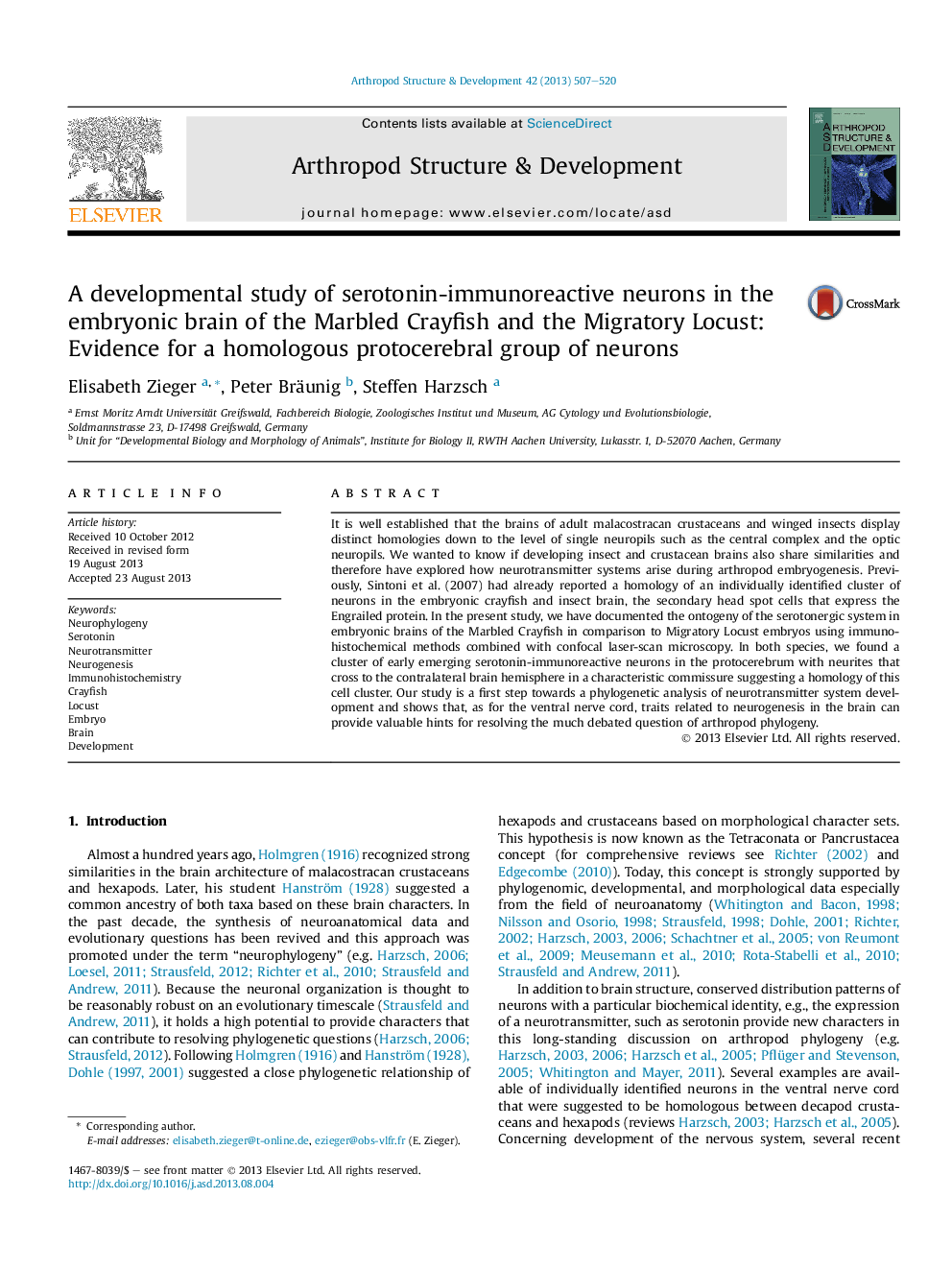| کد مقاله | کد نشریه | سال انتشار | مقاله انگلیسی | نسخه تمام متن |
|---|---|---|---|---|
| 2778551 | 1153143 | 2013 | 14 صفحه PDF | دانلود رایگان |

• We document the development of 5HT immunoreactivity in the Marbled Crayfish brain.
• We describe 5HT immunoreactivity in the embryonic brain of the Migratory Locust.
• Homologous serotonergic structures are identified by comparing both species.
• The phylogenetic implications of our findings are discussed.
It is well established that the brains of adult malacostracan crustaceans and winged insects display distinct homologies down to the level of single neuropils such as the central complex and the optic neuropils. We wanted to know if developing insect and crustacean brains also share similarities and therefore have explored how neurotransmitter systems arise during arthropod embryogenesis. Previously, Sintoni et al. (2007) had already reported a homology of an individually identified cluster of neurons in the embryonic crayfish and insect brain, the secondary head spot cells that express the Engrailed protein. In the present study, we have documented the ontogeny of the serotonergic system in embryonic brains of the Marbled Crayfish in comparison to Migratory Locust embryos using immunohistochemical methods combined with confocal laser-scan microscopy. In both species, we found a cluster of early emerging serotonin-immunoreactive neurons in the protocerebrum with neurites that cross to the contralateral brain hemisphere in a characteristic commissure suggesting a homology of this cell cluster. Our study is a first step towards a phylogenetic analysis of neurotransmitter system development and shows that, as for the ventral nerve cord, traits related to neurogenesis in the brain can provide valuable hints for resolving the much debated question of arthropod phylogeny.
Journal: Arthropod Structure & Development - Volume 42, Issue 6, November 2013, Pages 507–520